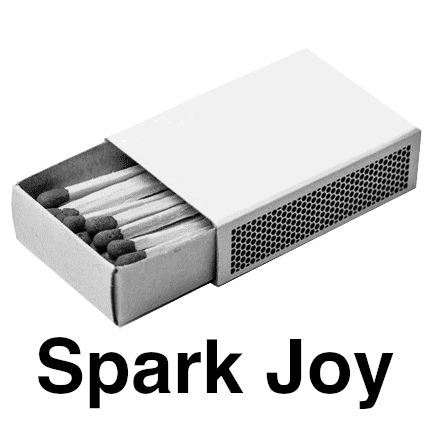Anarchominimalism: a checklist for extremists
The following is a list of the 8 Processes of Anarchominimalism and a checklist of some of the actionable elements within those processes.
Most of these actions can be accomplished in a single weekend, and almost all of them can be accomplished within a month.
1. Owning only the amount that serves you
• Declutter your belongings by separating your possessions into groups and interrogating each item to make sure it still serves you:
• Clothing (Clothes/Jewelry/Accessories)
• Books (Books/Zines/CookBooks)
• Paper (Receipts/Fliers/Stickers)
• Kitchen (Food/Spices/Cookware)
• Electronics (Cables/Hard drives)
• Miscellaneous (Tools/Crafts/Supplies)
• Sentimental (Cards/Photos/Journals)
• Offer still useful declutterred items to friends and family or donate them (Within 30 days of decluttering)
• Trash whats is no longer useful (Immediately after decluttering)
2. Minimizing the amount of labor you expend
• Budget finances and cut out unnecessary expenses
• Work only the amount you need to meet your budget
• Reduce unwanted efforts and labors (simplify and automate tasks where possible)
• Declutter your social life
(only go to events you want to go to, or hang out with people you actually like.)
• Reduce burnout by not stretching yourself too thin
(Don’t feel obliged to go to every demo)
3. Circumventing the economy (Sharing, Repairing, Scamming, and Stealing)
• Find creative ways to “acquire’ the things you need
• Run each new possession through the path: Sharing>Renting>Scamming>Stealing>
Buying Used>Buying New
4. Reducing ecological impact and resource extraction
• Acquire only high-quality, long-lasting items
• Minimize waste of resources and labor of yours and others
• Practice personal sustainability
• [redacted]
5. Removing physical and digital evidence
• Revisit remaining possessions to make sure you have disposed of any physical evidence that can be used against you or loved ones
• Limit flagging criminal lifestyles in public (stickers, t-shirts, visible tattoos, etc.)
• Learn about evidence avoidance and disposal at https://www.notrace.how/
• Delete any incriminating files from harddrive
• Delete Social Media
• Limit internet presence
• Delete personal information from online information aggregators https://msha.ke/securitycultureworkshop
• Strengthen Digital security via the guides at https://www.anarsec.guide/
6. Limiting your digital footprint and screen time
• DELETE SOCIAL MEDIA
• Encrypt all personal digital devices
• Spend more time without your encrypted device, or at the very least have it off, away, and in a faraday bag (not just when having spicy conversations)
• Take an inventory of remaining screen time, and “declutter’ the screen time that does’t serve you
• Find the ways screen time works for you and find a balance with that
7. Building skills for enjoyment, sustainability, mutual-aid, self-defense and self-care
• Focus newly liberated time on learning to be more dangerous, healthy, self-sustaining, artistic, or whatever else brings you joy
• Tend towards learning in person and in community
• Build a network of people learning from each other
8. Preparing for ecological or social disasters
• Asses your threat model(s) (Wildfires, Floods, Nazis, Raided by Feds)
• Keep necessities in your Every Day Carry
• Build a bug-out bag with at least:
• Important Documents
(Passport, Medical Docs, Birth certificate)
• Food and Water for at least two days
• Prescriptions
• First Aid Kit (with Mask and Gloves)
• Flash Light (With extra batteries)
• Multitool
• Spare USB battery and charger
• Clothes for both warm and cold weather
• Lighter/Matches
• Store up Supplies where you live
• Food/Water for at least two weeks (For everyone in the house)
• First Aid Kits
• Flash Lights/Batteries
• Candles/Matches/lighters
• A way to cook without utilities
• Prescriptions
Everything for Everyone, Nothing for Ourselves
Ⓐ /// Ⓔ
